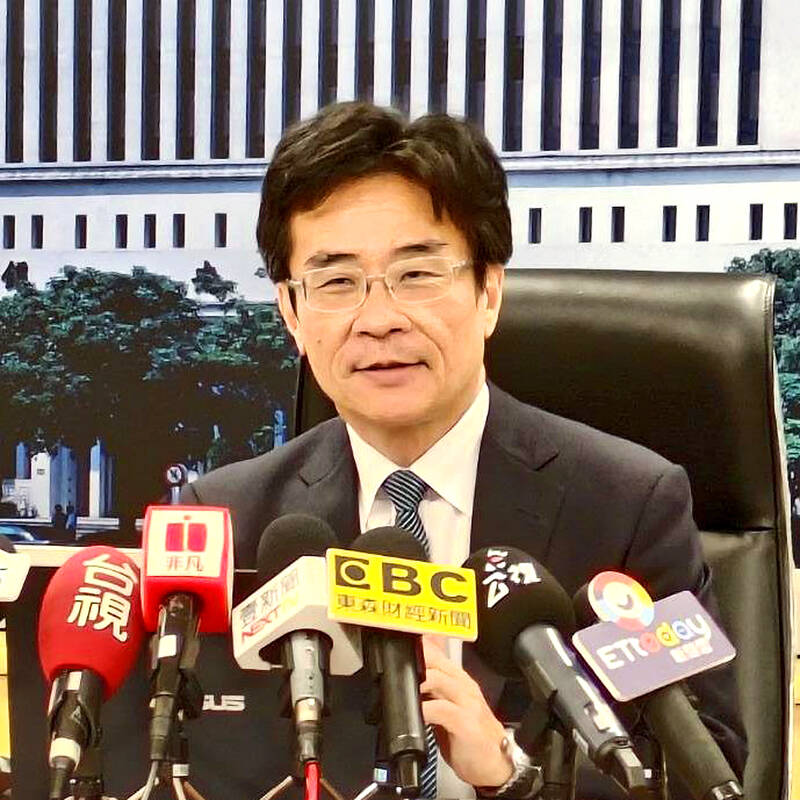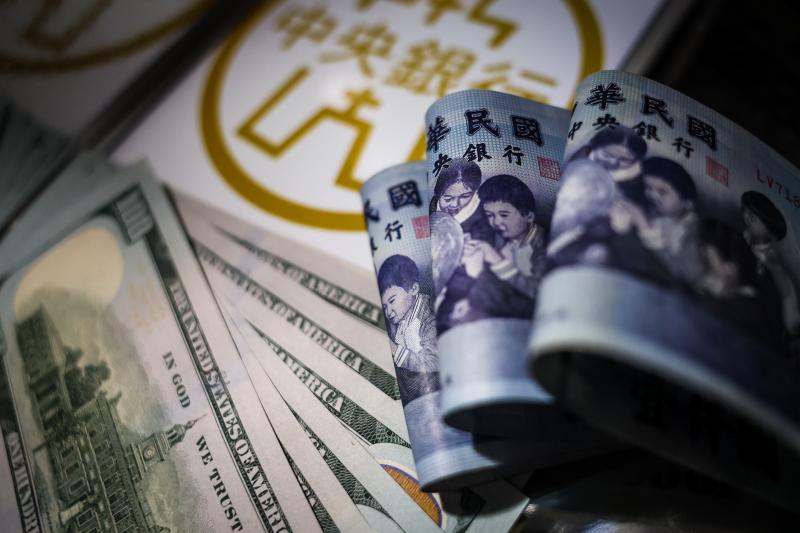The central bank is to launch special financial inspections on financial institutions, including local banks and foreign custodian banks, as part of efforts to curb speculative “hot money” inflows following a recent surge in the New Taiwan dollar, a central bank official said yesterday.
“The central bank will conduct on-site inspections to ensure that capital inflows are for investments in local stocks and not for currency speculation,” cable TV station USTV quoted Department of Foreign Exchange Director-General Eugene Tsai (蔡炯民) as saying at a central bank news conference in Taipei.
After foreign capital is remitted into Taiwan and converted into NT dollars, it should be used to purchase local stocks within one week at the latest and may not be kept on the sidelines for a long time, or it risks being flagged as currency speculation by the central bank, Tsai said, without specifying the maximum duration for which funds can remain idle in NT dollar-denominated accounts before drawing scrutiny.

Photo courtesy of the central bank
The central bank is not just concerned about the inflow of hot money, but is also monitoring whether NT dollar foreign exchange forward contracts by importers and exporters are being transacted based on genuine business needs, he added.
The NT dollar yesterday closed down NT$0.135 at NT$30.180 against the US dollar in Taipei trading. The local currency appreciated NT$1.065 against the greenback last month, before accelerating on Friday and Monday to post a gain of NT$1.872 over the two sessions, central bank data showed.
Market expectations for further appreciation of the NT dollar had largely subsided by yesterday. Tsai said.

Photo: CNA
“Judging from today’s market, we can already feel that the disorder has come to an end and the market has returned to a relatively rational situation,” he said.
Tsai made the remarks after the central bank released the nation’s foreign exchange reserve data for last month, which showed an increase of US$4.81 billion, or 0.83 percent, from the previous month to US$582.832 billion.
The figure marked a new record high for Taiwan’s foreign exchange reserves, reflecting the central bank’s purchase of US dollars last month to help maintain orderly NT dollar movements within a manageable range.
In addition, returns from the bank’s management of reserve assets and exchange rate movements of other reserve currencies against the US dollar also contributed to the rise in foreign exchange reserves, the central bank said.
As of the end of last month, the market value of securities investments and deposits held by foreign portfolio investors totaled US$721.9 billion, equivalent to 124 percent of the nation’s foreign exchange reserves, compared with US$708.9 billion, or 123 percent, at the end of the previous month, the central bank said.

NEW IDENTITY: Known for its software, India has expanded into hardware, with its semiconductor industry growing from US$38bn in 2023 to US$45bn to US$50bn India on Saturday inaugurated its first semiconductor assembly and test facility, a milestone in the government’s push to reduce dependence on foreign chipmakers and stake a claim in a sector dominated by China. Indian Prime Minister Narendra Modi opened US firm Micron Technology Inc’s semiconductor assembly, test and packaging unit in his home state of Gujarat, hailing the “dawn of a new era” for India’s technology ambitions. “When young Indians look back in the future, they will see this decade as the turning point in our tech future,” Modi told the event, which was broadcast on his YouTube channel. The plant would convert

‘SEISMIC SHIFT’: The researcher forecast there would be about 1.1 billion mobile shipments this year, down from 1.26 billion the prior year and erasing years of gains The global smartphone market is expected to contract 12.9 percent this year due to the unprecedented memorychip shortage, marking “a crisis like no other,” researcher International Data Corp (IDC) said. The new forecast, a dramatic revision down from earlier estimates, gives the latest accounting of the ongoing memory crunch that is affecting every corner of the electronics industry. The demand for advanced memory to power artificial intelligence (AI) tasks has drained global supply until well into next year and jeopardizes the business model of many smartphone makers. IDC forecast about 1.1 billion mobile shipments this year, down from 1.26 billion the prior

People stand in a Pokemon store in Tokyo on Thursday. One of the world highest-grossing franchises is celebrated its 30th anniversary yesterday.

Zimbabwe’s ban on raw lithium exports is forcing Chinese miners to rethink their strategy, speeding up plans to process the metal locally instead of shipping it to China’s vast rechargeable battery industry. The country is Africa’s largest lithium producer and has one of the world’s largest reserves, according to the US Geological Survey (USGS). Zimbabwe already banned the export of lithium ore in 2022 and last year announced it would halt exports of lithium concentrates from January next year. However, on Wednesday it imposed the ban with immediate effect, leaving unclear what the lithium mining sector would do in the